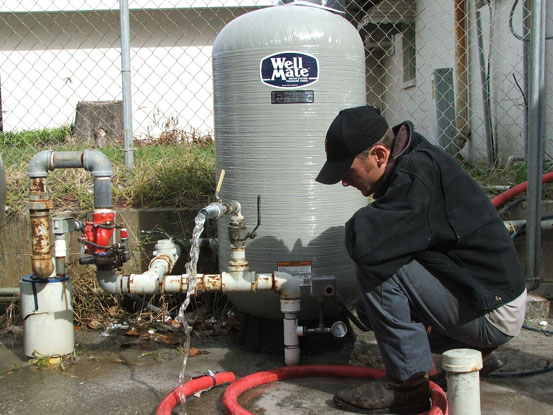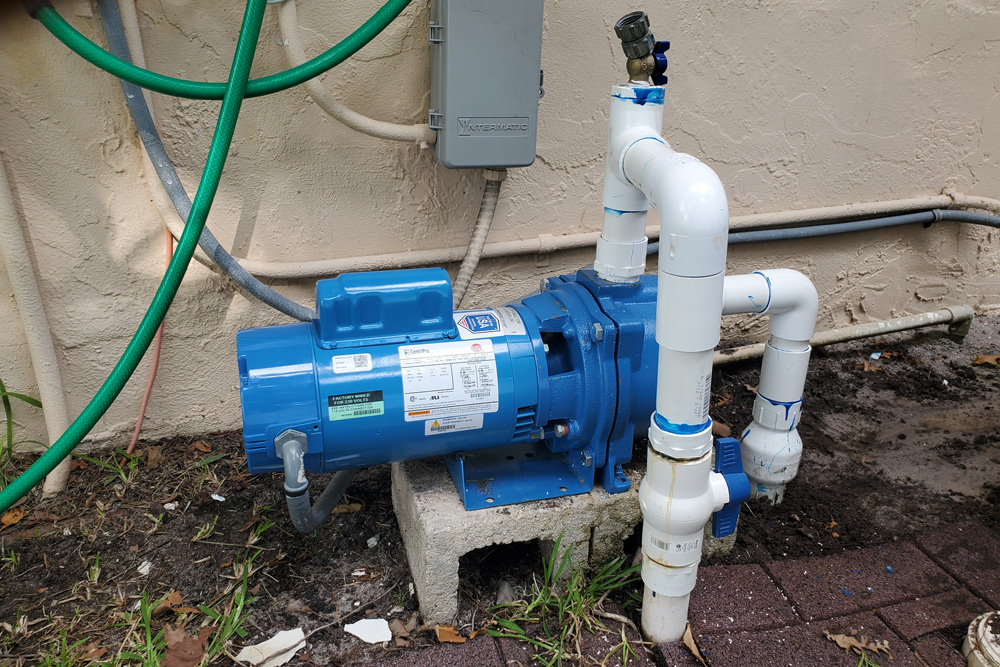Effortless Well Pump Replacement: Renewing Your Water Infrastructure with Confidence
Effortless Well Pump Replacement: Renewing Your Water Infrastructure with Confidence
Blog Article
Understanding the Secret Components of Effective Water Filtration Systems

Relevance of Water Filtering Solution
Water filtering systems play an important function in guaranteeing accessibility to safe and clean alcohol consumption water by properly getting rid of impurities and impurities. These systems are necessary in resolving the growing worries over water top quality and the potential health dangers related to eating contaminated water. By making use of various purification mechanisms such as reverse osmosis, turned on carbon, and UV sanitation, water filtration systems can successfully eliminate unsafe compounds like microorganisms, infections, heavy metals, and chemicals from the supply of water.
Moreover, water filtering systems help to boost the taste and odor of water by eliminating chlorine, sediments, and other pollutants that can influence its top quality. Water Treatment. This enhancement in water top quality not only makes it much more tasty yet also urges individuals to consume alcohol a sufficient quantity of water daily, promoting much better hydration and general health
Kinds of Purification Components

Physical filters are developed to physically stress out contaminations from the water. These filters can be made from products like ceramic, carbon, and even sand, and they function by trapping particles bigger than the filter's pores as water goes through.
Chemical filters make use of different chemical processes to remove impurities from the water. Examples include turned on carbon filters, which adsorb contaminations, and turn around osmosis membrane layers, which use stress to separate impurities from the water.
Organic filters utilize living organisms like bacteria or algae to break down natural matter and contaminants in the water. These filters are often used in wastewater treatment plants or natural water filtration systems.
Understanding the different sorts of filtering components is important for choosing one of the most suitable water filtering system for details filtration needs.
Function of Sediment Filters
Sediment filters play an important duty in water purification systems by successfully capturing strong bits put on hold in the water. These filters are generally the initial line of defense in a filtering system, eliminating larger particles such as sand, silt, dirt, and corrosion prior to the water relocates via finer purification stages. By trapping these debris, the filters prevent them from getting to downstream parts, hence expanding the lifespan and effectiveness of the entire system.
Overlooking this maintenance can lead to clogging, decreased water flow, and jeopardized purification performance. On the whole, sediment filters are crucial parts that add considerably to the efficiency of water purification systems.
Function of Turned On Carbon Filters
Playing a critical duty in water filtration systems, activated carbon filters contribute in getting rid of pollutants and impurities from the supply of water. These filters are designed to adsorb and trap a wide variety of contaminants, including chlorine, unstable natural substances (VOCs), pesticides, and herbicides. The triggered carbon product has a huge area, enabling the effective trapping of contaminants through a process called adsorption. As water travels through the filter, the triggered carbon holds and brings in onto the pollutants, ensuring that the water that comes out beyond is cleaner and much safer for usage.
Triggered carbon filters are very reliable at improving the taste and smell of water by minimizing chemicals that can influence its quality. They are additionally qualified of getting rid of see page particular heavy steels like lead and mercury. Additionally, these filters can assist protect against the accumulation of bacteria and algae in water, more boosting its overall quality. Because of their adaptability and reliability, turned on carbon filters are a key element in making sure that water is cleansed to the highest possible standards before reaching customers.
Recognizing Reverse Osmosis Equipments
Reverse osmosis systems are sophisticated water filtering systems that use a sophisticated procedure to remove pollutants and contaminations from alcohol consumption water. These systems work by using pressure to the water, compeling it with a semi-permeable membrane layer. This Discover More membrane serves as an obstacle, enabling only distilled water molecules to pass through, while blocking bigger particles such as minerals, chemicals, and various other pollutants. As an outcome, the water that appears on the other side is substantially cleaner and much safer for usage.
One key advantage of reverse osmosis systems is their capability to get rid of a large array of pollutants, consisting of hefty metals, liquified germs, infections, and solids. This makes them very efficient in enhancing the overall high quality and safety and security of drinking water. Additionally, reverse osmosis systems are relatively low-maintenance and can be installed under the sink or in a central filtration system, supplying hassle-free accessibility to tidy water throughout the house. On the whole, comprehending exactly how reverse osmosis systems work can help individuals make notified decisions concerning their water purification demands.
Final Thought
To conclude, effective water filtration systems are crucial for guaranteeing tidy and risk-free alcohol consumption water. The key parts of these systems include debris filters, triggered carbon filters, and reverse osmosis systems. By recognizing the feature and role of each element, people can make educated decisions when choosing a water filtration system. It is crucial to focus on the top quality of water in order to promote general wellness and wellness.
Water purification systems play a vital function in guaranteeing accessibility to clean and risk-free drinking water by effectively removing contaminants and pollutants. By utilizing various filtering systems such as reverse osmosis, activated carbon, and UV sterilization, water filtration systems can successfully eliminate dangerous compounds like bacteria, infections, hefty metals, and chemicals from the water supply.
Sediment filters play a vital role in water filtering systems by properly recording strong particles suspended in the water (Pump repairs & installation).Playing an essential duty in water filtration systems, turned on carbon filters are critical in eliminating contaminations and contaminants from the water supply.Reverse osmosis systems are innovative water filtration systems that employ an innovative procedure to eliminate pollutants and impurities learn the facts here now from alcohol consumption water
Report this page